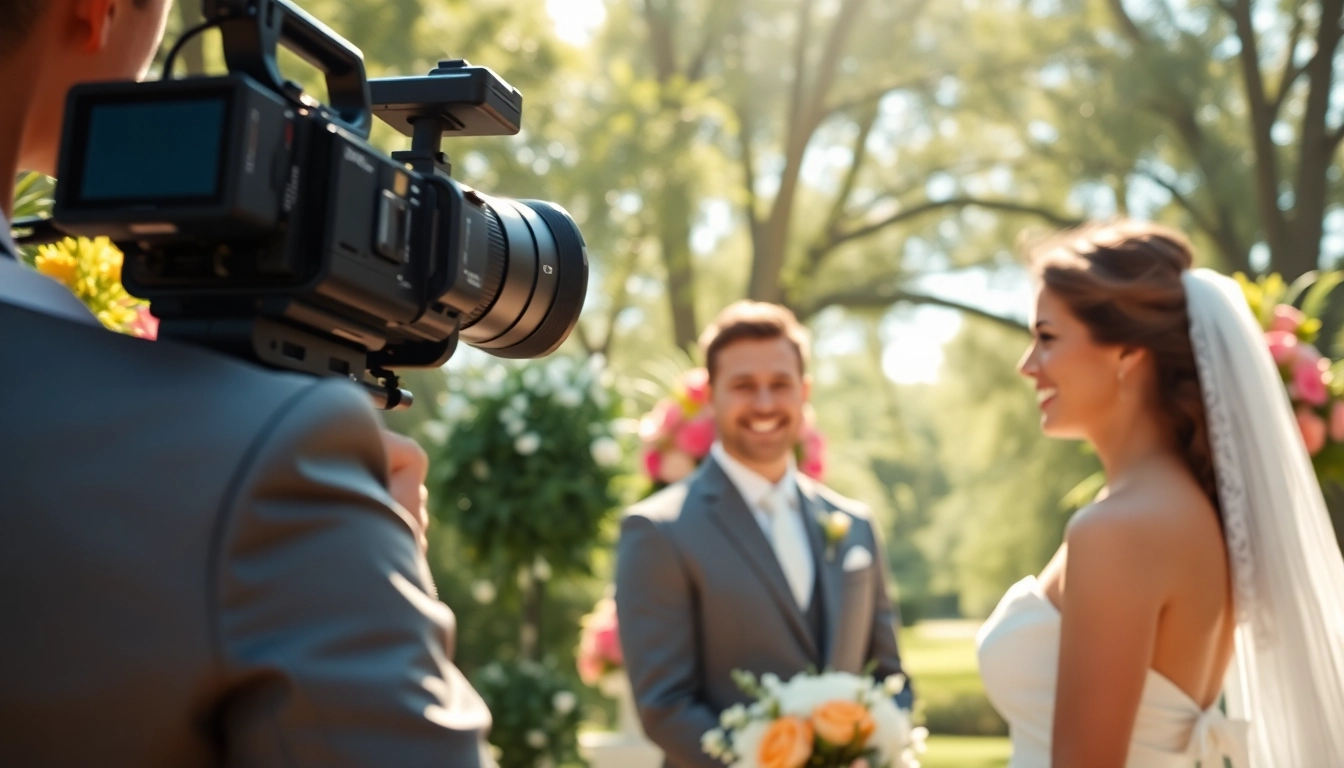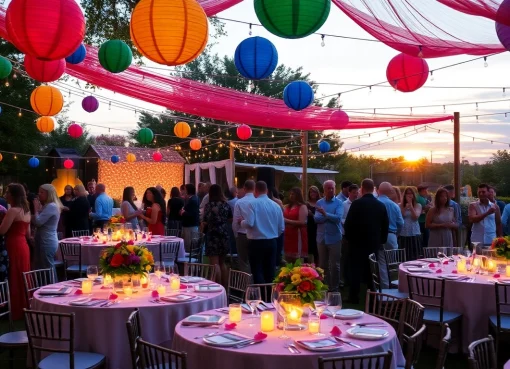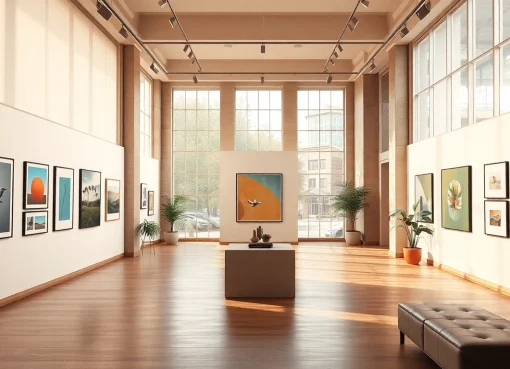Memorable Moments: Choosing the Right Edmonton Videographer for Your Special Day

The Importance of an Edmonton Videographer
In today’s digital age, the visual storytelling medium has become a cornerstone for preserving memories and creating lasting legacies. Whether you’re detailing a wedding, capturing a corporate event, or showcasing your creative projects, the role of an edmonton videographer is crucial. With professional videography services, you not only document events but also share stories that evoke emotions and connect with audiences on a deeper level.
Why Video Matters for Weddings
Weddings are monumental occasions steeped in emotion and joy. Capturing such intimate moments requires more than a still image; it necessitates the art of storytelling that a video best encapsulates. Through motion, sound, and the ability to portray the vibe of the event, videos can immortalize the nuances—from a glance shared between partners to the laughter of family and friends.
Video enhances the wedding experience by allowing couples to relive their special day and share it with those unable to attend. It immortalizes feelings in a way that photographs cannot, providing an immersive experience that captures the essence of the day. Professional videographers excel in crafting a narrative that highlights unique moments and emotions that would otherwise remain unrecorded.
Emotional Storytelling Through Film
The power of video lies in its ability to convey emotions. A carefully composed video captures not just the event but the ambiance, interactions, and feelings of the moment. Each frame is an opportunity to portray the depth of relationships, the excitement of the occasion, and the elegance of the setting. As a narrative medium, videography has the potential to evoke nostalgia and joy, making it a perfect choice for weddings, anniversaries, and special family milestones.
Filmmakers skilled in emotional storytelling often include personal elements—such as interviews with the couple, snippets of heartfelt messages from loved ones, or thematic music that resonates with the couple’s story. This layered approach transforms mere documentation into an artistic representation of love, enriching the viewer’s experience and emotional investment in the couple’s journey.
The Role of a Videographer in Capturing Memories
Videographers are more than just camera operators; they are storytellers, artists, and technicians all rolled into one. Their role begins long before the wedding day, with pre-event consultations that help them understand the couple’s vision, preferences, and any special moments they wish to highlight. This collaborative approach ensures that the final product aligns with the couple’s expectations and captures their unique love story.
On the wedding day, a talented videographer will discreetly capture moments like the bride’s anticipation before the ceremony or the groom’s reaction as he sees her walking down the aisle. Post-event, they craft these captured moments into a coherent narrative, resulting in a beautifully edited video that can be cherished for a lifetime.
Finding the Perfect Edmonton Videographer
When searching for the ideal videographer for your project, particularly in a vibrant city like Edmonton, it’s essential to approach the selection process systematically. A thorough understanding of your needs, budget, and style preferences will significantly enhance your ability to find a videographer who can bring your vision to life.
Researching Local Videographers
Start your search by exploring local videography offerings in Edmonton. Utilize social platforms, search engines, and community boards to compile a list of potential candidates. Look for videographers who specialize in the type of event you’re planning, whether it’s a wedding, corporate function, or promotional video. Pay attention to online reviews, testimonials, and social media presence, as these can provide insights into their reputation and style.
Networking within your community can also yield valuable recommendations. Friends, family, or colleagues who have recently utilized videography services could offer insights based on their experiences. Additionally, local wedding fairs, expos, and creative meet-ups often feature videographers, allowing you to connect directly with potential candidates.
Assessing Portfolios and Styles
Once you’ve compiled a list of videographers, assessing their portfolios is crucial. Look for a distinctive style that resonates with your vision. Pay attention to various elements like composition, editing techniques, and artistic choices. What kind of story do their sample videos tell? Do they capture emotions effectively? These factors will offer clues to their ability to deliver what you desire.
A diverse portfolio showcasing weddings, corporate events, or personal projects can be a good indicator of adaptability and skill. After all, each event offers unique challenges and requires a versatile approach to videography.
Understanding Your Needs and Budget
Before reaching out to potential videographers, define your needs clearly. Consider the scope of your project—what specific moments do you want captured? Are you interested in a cinematic highlight reel, a full-length documentary, or something entirely different? Understanding your requirements will not only help in choosing the right professional but will also assist in budget preparation.
When budgeting for videography, keep in mind that costs can vary significantly based on experience, equipment, and the complexity of your project. It’s important to balance quality with affordability; investing in a skilled videographer often leads to superior results. Discuss your budget openly with potential hires; a reputable videographer will work within your constraints to meet your expectations creatively.
Questions to Ask Potential Videographers
Once you have narrowed down your list of potential videographers, conducting interviews is the next step. This conversation helps clarify their capabilities and aligns expectations. Here are some critical questions to ask during your consultations.
Experience and Expertise
Understanding their experience is pivotal. Ask about their past projects, specifically those comparable to your event. Inquire about their years of experience and their approach to videography. For weddings, it may also be helpful to ask whether they’ve worked at your venue before, as familiarity can lead to better footage and fewer surprises.
Equipment and Techniques Used
Professional-grade equipment is essential for high-quality video. Ask what gear they use and whether they have back-up equipment on the day of the event, as technical issues can arise unexpectedly. Additionally, inquire about their filming techniques—do they utilize drones for aerial shots? Do they cover multiple angles during significant moments? Understanding their methods will give you insight into the final product’s quality.
Delivery Times and Formats Available
Clarifying delivery timelines and formats is crucial in ensuring you receive your finished product as planned. Ask how long it typically takes for them to edit and deliver a video after an event. Additionally, confirm the formats available—do they provide digital copies, DVDs, or both? Furthermore, inquire if they offer different length options for the final video, such as a short highlight reel versus a longer comprehensive edit.
Preparing for Your Videography Session
Preparation plays a paramount role in ensuring a successful videography session. Effective communication and planning can promote an environment where creativity flourishes, resulting in visually stunning content that meets your expectations.
Communicating Your Vision
Once you have selected your videographer, detailing your vision is paramount. Share core elements you want to be highlighted—these might include specific moments, people, or themes that are significant to you. Create a timeline of key events that need to be captured, ensuring the videographer knows where they need to be at specific moments.
Discuss any must-have shots with them, and don’t hesitate to share reference videos or styles you admire. A clear communication line will allow the videographer to comprehend your uniquely individual style, leading to a more fulfilling outcome.
Setting Up the Location
If you’re hosting a private event, the venue’s lighting, layout, and accessibility can significantly affect the final footage. Prep your location with the videographer, discussing optimal positioning for crews and equipment. Ensure you have permission to film in specific areas and accommodate any other factors, such as noise levels or foot traffic that may interfere with the filming process.
For outdoor events, considering unforeseen weather conditions is essential. Contingency plans are vital to mitigate any potential issues that may arise when shooting outdoors.
Coordinating with Other Vendors
On the day of the event, coordination between vendors can affect the flow and quality of the shoot. Ensure that your videographer communicates with other professionals involved, such as photographers, planners, and entertainers. Establishing a consistent flow where all parties collaborate can streamline the process and guarantee that no important aspect of your event goes unrecorded.
Having a shared timeline of activities can help guide everyone involved, keeping distractions to a minimum so the videographer can focus entirely on capturing the essence of your event.
Evaluating Your Edmonton Videographer’s Work
Once you’ve received your video, the evaluation process is a crucial step in ensuring the quality matches your expectations. It not only determines satisfaction with the final product but also informs any potential future collaborations.
Post-Production Techniques
Post-production is where the magic happens, transforming raw footage into a polished final product. Take the time to examine the transitions, color grading, and overall narrative flow in your video. Good videographers will know how to balance pacing and highlight critical moments, creating a cohesive story that keeps viewers engaged.
Look for clever editing techniques that enhance the story without overpowering it. This could include the thoughtful inclusion of music, voice-overs, and visual effects that complement the footage rather than distract from it.
Editing and Final Delivery
The editing process affects the final delivery significantly. After reviewing your video, you may want to provide feedback. Good videographers are open to constructive criticism and can accommodate additional requests for edits. Evaluate how responsive they are to your suggestions—efficient communication during this stage can be indicative of their overall professionalism.
Once the final product is delivered, ensure it’s in a format that works for you—whether that be a digital file, streaming option, or physical copies, ensuring ease of access and sharing with friends and family.
Reviewing and Sharing Your Video
Upon receiving your final video, reviewing it with family and friends can be a delightful experience. Look for areas where the videographer exceeded expectations, see how well they’ve captured vital moments, and share your thoughts with them. Honest feedback not only aids your reflection but also provides them with valuable insights for future projects.
Don’t forget to share your video! Utilize social media, family gatherings, or a dedicated sharing platform to relive the emotions from your day. A well-produced video allows for retelling stories for years to come, bringing communities together and sparking joy with every viewing.



Leave a Comment